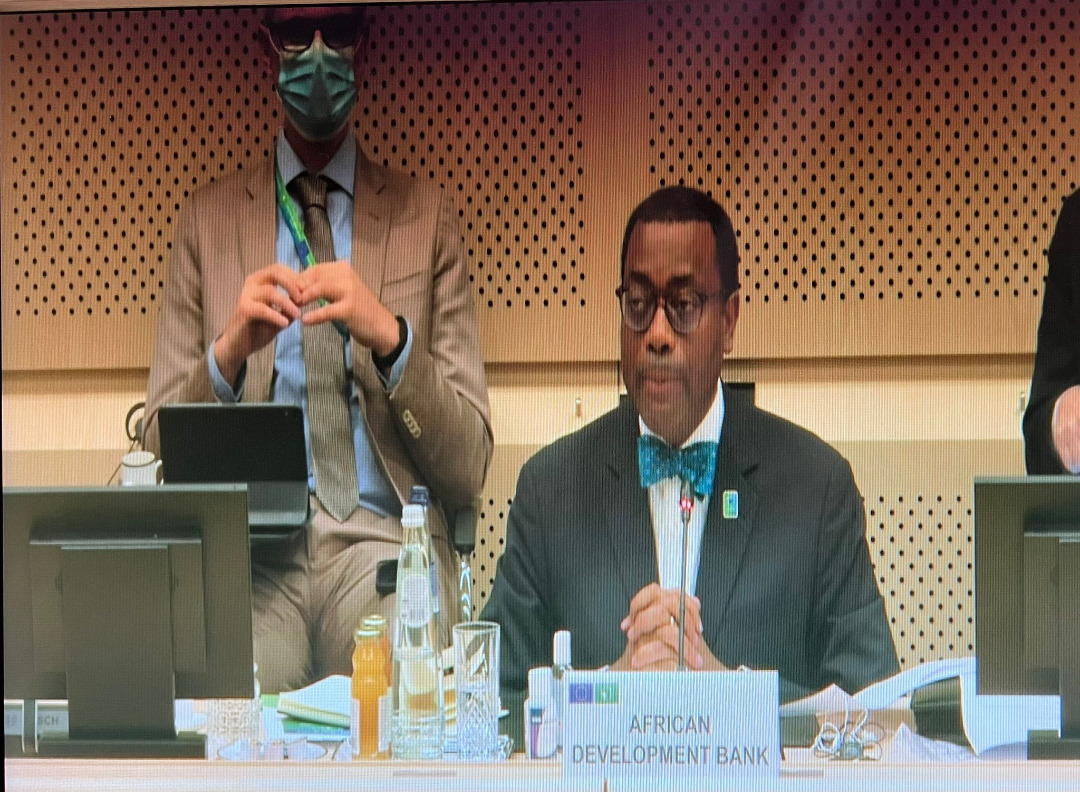|
Getting your Trinity Audio player ready...
|
By Baboloki Semele
Last year, Africa’s infrastructure investment gap was estimated to hit $51bn, and just as investors are calling for more stringent infrastructure sustainability guidelines, the amount of green financing available has dramatically grown, with the sustainable bond market surging from $800bn in 2019 to $1.314tn in 2020. Against this backdrop, sustainable strategies are key to bridging the infrastructure gap, while having the added advantage of boosting the economic viability of newly created markets and distributed infrastructure investments.
But how can sustainable strategies be adapted to the continent’s specificities in terms of cost, distribution, and profitability? What upstream market strategies could help bring about a bankable framework? And what sustainable solutions are needed to decentralize infrastructures?
Inadequate infrastructure is widely recognised to be holding back Africa’s development and lowering the quality of life of its citizens. The traffic jams of Nairobi, the power cuts of Nigeria, or the water shortages that currently afflict Harare and Bulawayo are some of these. The same is true in fast-growing regions of Latin America and many parts of Asia. It is widely agreed from Addis Ababa to Brasilia, New Delhi and beyond that infrastructure investment is a priority.
But what kind of infrastructure is needed?
Perhaps the Alliance for Green Infrastructure in Africa will be an answer and solution to all these questions and others. This is because the African Development Bank Group and Africa50, in partnership with the African Union Commission and the African Union Development Agency (AUDA-NEPAD), are exploring collaboration with global partners to create an Alliance for Green Infrastructure in Africa.
According to a press release from African Development Bank Group President Dr. Akinwumi Adesina made the announcement on Thursday (17 February 2022) while speaking at a thematic roundtable on climate change and energy transition at the 6th European Union-African Union Summit in Brussels, Belgium.
The release further says European Investment Bank, European Bank for Reconstruction and Development, the French Development Agency, AFD, and the Rockefeller Foundation have expressed their interest in joining the Alliance. And there is a strong push to attract more African and global partners.
It is globally acknowledged that climate change continues to devastate Africa’s economies and the livelihoods of its people, despite the continent’s minimal contribution to greenhouse gas emissions. Climate change has taken lives, caused food insecurity, displaced populations, damaged critical infrastructure, and disrupted economies. Increased geopolitical tensions could further threaten livelihoods and stability.
“The key challenge for infrastructure development on the African continent is the dearth of bankable opportunities. Therefore, project development and preparation are critically important. Evidence shows that there is enough capital looking for yield. However, what is missing, is a robust pipeline of de-risked projects with stable long-term cash flows. There is also an increasing institutional investor appetite for green, sustainable, environmental, and social investments. That is why these African institutions and global partners are intent on mitigating the adverse effects of climate change through prompt investment in greener, climate-resilient, inclusive, quality, and sustainable infrastructure,” adds the release.
This publication is reliably informed that the Alliance for Green Infrastructure in Africa will complement, enhance, and partner with continental and global initiatives to crowd in private capital to fund green infrastructure projects. The idea is to bridge investment gaps and engender financing at scale and with speed.
The Alliance’s overarching goal will be to leverage the private sector to transparently develop transformative infrastructure that sustainably bridges Africa’s infrastructure deficit in a climate-resilient manner. It will do this by addressing universal energy access and strengthening Africa’s energy systems, while minimizing sovereign debt accumulation, especially during this period of limited fiscal capacity across Africa.
Specifically, the Alliance for Green Infrastructure in Africa will raise significant capital to accelerate Africa’s just and equitable transition to Net Zero emissions, with two strategic objectives to develop and fund a robust pipeline of transformational bankable greener projects, and to catalyze financing at scale and speed for Africa’s greener infrastructure.
To build a robust pipeline of bankable projects, the Alliance will raise up to $500 million to provide early-stage resources to develop greener infrastructure projects. This will start at the pre-feasibility stage all the way through to commercial and financial close.
These resources will also support the development of innovative ideas for accelerating the transition to Net-Zero which, if proven sustainable, can be further scaled up and replicated across countries.
To achieve scale in greener infrastructure project development, the Alliance will execute its program with three categories of infrastructure project developers: a scaled-up Africa50; Africa50 in co-development with local African developers; and select experienced third-party private infrastructure developers.
The Alliance’s project development activities are projected to generate up to $10 billion in investment opportunities. This will be mobilized from a combination of co-investments, co-financing, risk mitigation, and blended finance from Alliance members, other development finance institutions, commercial financial institutions, and foundations; public and private global and African institutional investors; project sponsors; and multilateral development banks’ sovereign operations and G-20 bilateral donors.
Alliance members will come together to use their collective efforts to expedite Africa’s transition to Net-Zero by bridging the climate-resilient infrastructure gap, thus helping Africa to meet its global development ambitions.






